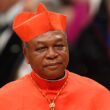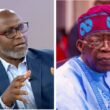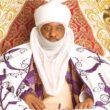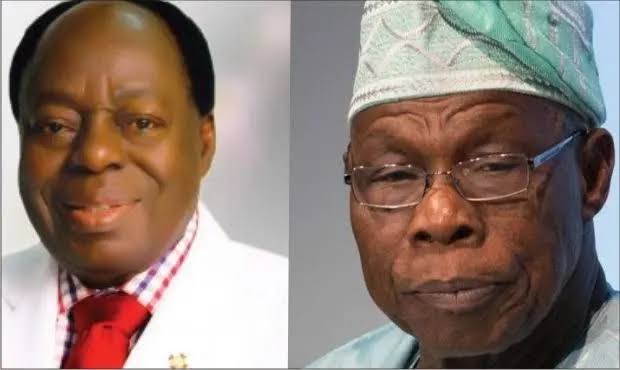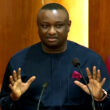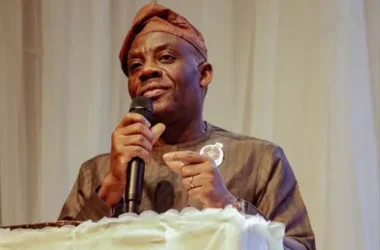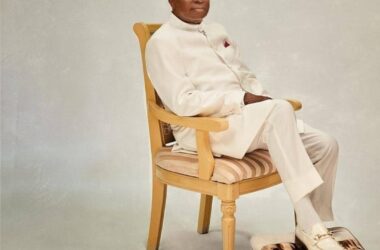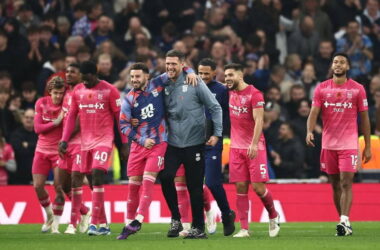A confidential United States diplomatic cable, recently leaked by WikiLeaks and shared by SaharaReporters, has brought attention to allegations of judicial bribery involving former Nigerian President Olusegun Obasanjo and respected lawyer Chief Afe Babalola.
The cable details claims that the duo played a central role in influencing a 2004 Court of Appeal ruling to favor Boni Haruna, then Governor of Adamawa State.
The leaked document, initially shared by former presidential candidate Omoyele Sowore, accuses Obasanjo and Babalola of distributing significant sums of money to ensure a favorable court decision.
According to the allegations, each of the five tribunal judges received 30 million naira (approximately $225,000 at the time) to secure Haruna’s position. A lawyer from Babalola’s team reportedly confirmed the cash transfers, describing the practice as a “normal procedure” for high-stakes cases in Nigeria.
The bribery allegations are tied to a controversial appeal. On July 5, 2004, the appeals court in Jos overturned a previous tribunal ruling that had nullified Haruna’s election, citing substantial electoral malpractices. The appeal court dismissed the tribunal’s findings as baseless, stating that the evidence was “scandalous and naive.”
The cable reads: “On July 5, an appeals court sitting in Jos overturned the March 24 election tribunal decision that had nullified the election of Adamawa State Governor Boni Haruna. The verdicts of the appeals court and the election tribunal differed so significantly on their findings of the relevant facts that they beg the question of whether one verdict or the other may have been “influenced” by outside parties. End summary.
“2. (U) On July 5, an appeals court sitting in Jos overturned the March 24 election tribunal decision (reftels A and B) that had nullified the election of Adamawa State Governor Boni Haruna, PDP member and protege of VP Atiku Abubakar. The original election tribunal had found “beyond reasonable doubt” that electoral malpractices had taken place, and that the election was noncompliant with the Electoral Law.
“3 (U) The appeals court in Jos, however, found that the evidence used by the election tribunal was “absolutely inadequate even to prove the simplest of a criminal offence, very impotent to affect the appellants/cross respondents, ridiculous for convicting any of the appellants/cross respondents with commission of any electoral offence,” and that the evidence was scandalous and naive as a basis for nullifying the election.
“4. (C) According to an attorney for Haruna, the outcome was ensured in typical Nigerian fashion: with cash. The attorney, who works for Presidential attorney Afe Babalola, said that when President Obasanjo sent Babalola to take over the appeal, he also sent cash to be used for the appeal. The attorney claims that he went along for the delivery of 30 million naira (about $225,000) to each of the five judges on the tribunal but did not know if this was all the money disbursed. “This is the normal procedure when it is an important case,” he averred.
“5. (U) Note. The appeals court decision is final and cannot be appealed to Nigeria’s Supreme Court. End Note.
“6. (SBU) Comment. While the Embassy has been unable to examine the Appeal Court ruling in its entirety, the verdicts of the appeals court and the election tribunal differed so significantly on their findings of the relevant facts that it begs the question of whether one verdict or the other may have been “influenced” by outside parties.
“Both courts were composed of senior members of the judiciary, both operating under the same laws, principles, and guidelines. It would be normal for an appeals court to have a slightly different interpretation than a lower court, but the radically divergent views of the Jos court from the Yola tribunal leave little doubt that something other than the law was factored into the final decision.


